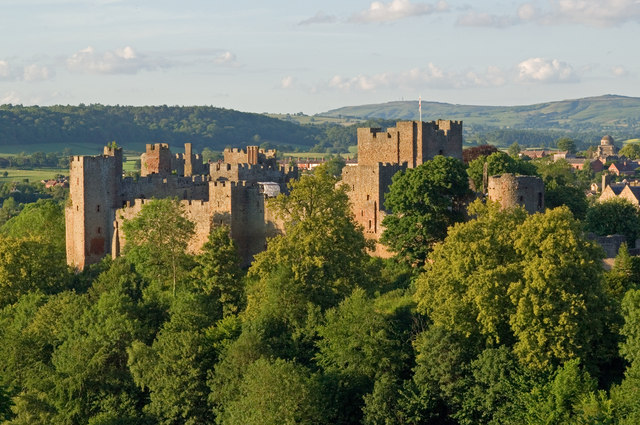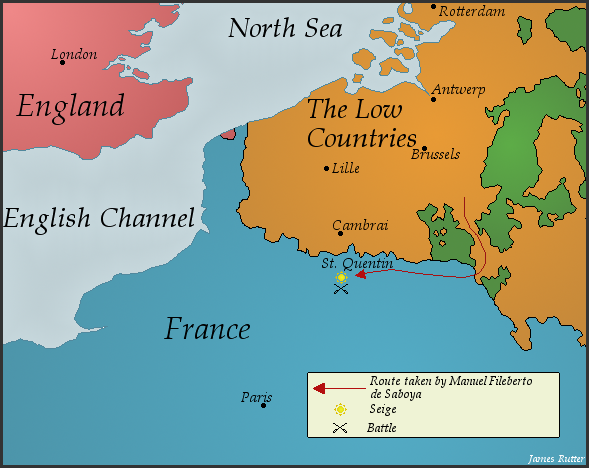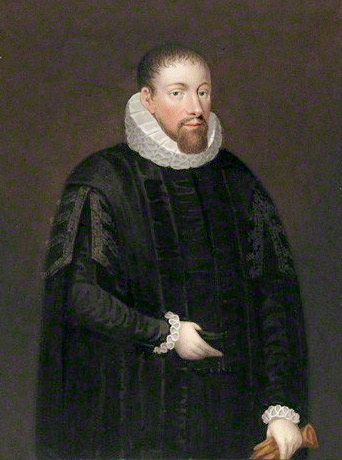|
John Pollard (speaker)
Sir John Pollard (died August 1557) was a Speaker of the House of Commons. He became Speaker in 1553 and was made a Knight Bachelor only a few weeks before his death. Life He was second son of Walter Pollard of Plymouth, by Avice, daughter of Richard Pollard of Way, in the parish of St Giles in the Wood, near Great Torrington, Devon. John Pollard may have been the Pollard who, without Christian name, is mentioned as entering the Middle Temple on 3 June 1515; but it may also be that this entry is that of his relative Lewis Pollard, son of Sir Hugh Pollard and grandson of Sir Lewis Pollard (c. 1465 – 1526), Justice of the Common Pleas. John was appointed Autumn Reader of the Middle Temple in 1535, and became serjeant-at-law in 1547. In 1529 and 1536 he was elected Member of Parliament for Plymouth. After 1545 he received, perhaps through the influence of a relative, Richard Pollard, who had taken part in the suppression of the monasteries, a grant of the manor of Nuneham C ... [...More Info...] [...Related Items...] OR: [Wikipedia] [Google] [Baidu] |
Speaker Of The House Of Commons (United Kingdom)
The speaker of the House of Commons is the presiding officer of the House of Commons, the lower house and primary chamber of the Parliament of the United Kingdom. The current speaker, Sir Lindsay Hoyle, was elected Speaker on 4 November 2019, following the retirement of John Bercow. Hoyle began his first full parliamentary term in the role on 17 December 2019, having been unanimously re-elected after the 2019 general election. The speaker presides over the House's debates, determining which members may speak and which amendments are selected for consideration. The speaker is also responsible for maintaining order during debate, and may punish members who break the rules of the House. Speakers remain strictly non-partisan and renounce all affiliation with their former political parties when taking office and afterwards. The speaker does not take part in debate or vote (except to break ties; and even then, the convention is that the speaker casts the tie-breaking vote accor ... [...More Info...] [...Related Items...] OR: [Wikipedia] [Google] [Baidu] |
Council For The Welsh Marches
The Court of the Council in the Dominion and Principality of Wales, and the Marches of the same, commonly called the Council of Wales and the Marches () or the Council of the Marches, was a regional administrative body based in Ludlow Castle within the Kingdom of England between the 15th and 17th centuries, similar to the Council of the North. Its area of responsibility varied but generally covered all of modern Wales and the Welsh Marches of Shropshire, Herefordshire, Worcestershire, Cheshire and Gloucestershire. The City of Bristol was exempted in 1562, and Cheshire in 1569. History 15th century The Council was initially responsible for governing the lands held under the Principality of Wales, the lands directly administered by the English Crown following the Edwardian conquest of Wales in the 13th century.William Searle Holdsworth, ''A History of English Law'', Little, Brown, and Company, 1912, p. 502 In 1457, King Henry VI created for his son, Prince Edward, a Council t ... [...More Info...] [...Related Items...] OR: [Wikipedia] [Google] [Baidu] |
Speakers Of The House Of Commons Of England
Speaker may refer to: Society and politics * Speaker (politics), the presiding officer in a legislative assembly * Public speaker, one who gives a speech or lecture * A person producing speech: the producer of a given utterance, especially: ** In poetry, the literary character uttering the lyrics of a poem or song, as opposed to the author writing the words of that character; see Character (arts) Electronics * Loudspeaker, a device that produces sound ** Computer speakers, speakers sold for use with computers ** Speaker driver, the essential electromechanical element of the loudspeaker Arts, entertainment and media * Los Speakers (or "The Speakers"), a Colombian rock band from the 1960s * ''The Speaker'' (periodical), a weekly review published in London from 1890 to 1907 * ''The Speaker'' (TV series), a 2009 BBC television series * "Speaker" (song), by David Banner * "Speakers" (Sam Hunt song), 2014 * ''The Speaker'', the second book in Traci Chee's Sea of Ink and Gold trilog ... [...More Info...] [...Related Items...] OR: [Wikipedia] [Google] [Baidu] |
Members Of The Parliament Of England For Plymouth
Member may refer to: * Military jury, referred to as "Members" in military jargon * Element (mathematics), an object that belongs to a mathematical set * In object-oriented programming, a member of a class ** Field (computer science), entries in a database ** Member variable, a variable that is associated with a specific object * Limb (anatomy), an appendage of the human or animal body ** Euphemism for penis * Structural component of a truss, connected by nodes * User (computing), a person making use of a computing service, especially on the Internet * Member (geology), a component of a geological formation * Member of parliament * The Members, a British punk rock band * Meronymy, a semantic relationship in linguistics * Church membership, belonging to a local Christian congregation, a Christian denomination and the universal Church * Member, a participant in a club or learned society A learned society (; also learned academy, scholarly society, or academic association) is a ... [...More Info...] [...Related Items...] OR: [Wikipedia] [Google] [Baidu] |
Knights Bachelor
The title of Knight Bachelor is the basic rank granted to a man who has been knighted by the monarch but not inducted as a member of one of the organised orders of chivalry; it is a part of the British honours system. Knights Bachelor are the most ancient sort of British knight (the rank existed during the 13th-century reign of King Henry III), but Knights Bachelor rank below knights of chivalric orders. A man who is knighted is formally addressed as "Sir irst Name urname or "Sir irst Name and his wife as "Lady urname. Criteria Knighthood is usually conferred for public service; amongst its recipients are all male judges of His Majesty's High Court of Justice in England. It is possible to be a Knight Bachelor and a junior member of an order of chivalry without being a knight of that order; this situation has become rather common, especially among those recognized for achievements in entertainment. For instance, Sir Michael Gambon, Sir Derek Jacobi, Sir Anthony Hopkins, Sir ... [...More Info...] [...Related Items...] OR: [Wikipedia] [Google] [Baidu] |
16th-century English Lawyers
The 16th century begins with the Julian year 1501 ( MDI) and ends with either the Julian or the Gregorian year 1600 ( MDC) (depending on the reckoning used; the Gregorian calendar introduced a lapse of 10 days in October 1582). The 16th century is regarded by historians as the century which saw the rise of Western civilization and the Islamic gunpowder empires. The Renaissance in Italy and Europe saw the emergence of important artists, authors and scientists, and led to the foundation of important subjects which include accounting and political science. Copernicus proposed the heliocentric universe, which was met with strong resistance, and Tycho Brahe refuted the theory of celestial spheres through observational measurement of the 1572 appearance of a Milky Way supernova. These events directly challenged the long-held notion of an immutable universe supported by Ptolemy and Aristotle, and led to major revolutions in astronomy and science. Galileo Galilei became a champion ... [...More Info...] [...Related Items...] OR: [Wikipedia] [Google] [Baidu] |
Pollard Family
Pollard may refer to: Places in the United States * Pollard, Alabama, a town * Pollard, Arkansas, a city * Pollard, Kansas, an unincorporated community People * Pollard (surname), a list of people with the surname * Pollard Hopewell (between 1786 and 1789 – 1813), midshipman in the United States Navy * Charles Pollard Olivier (1884–1975), American astronomer * James Pollard Espy (1785–1860), American meteorologist * Ngoia Pollard Napaltjarri (born c. 1948), Australian indigenous (Warlpiri people) artist * Thomas Pollard Sampson (1875–1961), Australian architect Flora and fauna *Pollard, an animal or a tree which has been polled (had its antlers or horns, or branches removed): **Pollard, a deer which has cast its antlers **Pollard or polled livestock, hornless livestock of normally-horned species **Pollard, a tree affected by pollarding, a method for shaping trees, cropping the branches above head-height * Pollard, the European chub (''Squalius cephalus''), a freshwater ... [...More Info...] [...Related Items...] OR: [Wikipedia] [Google] [Baidu] |
Year Of Birth Missing
A year or annus is the orbital period of a planetary body, for example, the Earth, moving in its orbit around the Sun. Due to the Earth's axial tilt, the course of a year sees the passing of the seasons, marked by change in weather, the hours of daylight, and, consequently, vegetation and soil fertility. In temperate and subpolar regions around the planet, four seasons are generally recognized: spring, summer, autumn and winter. In tropical and subtropical regions, several geographical sectors do not present defined seasons; but in the seasonal tropics, the annual wet and dry seasons are recognized and tracked. A calendar year is an approximation of the number of days of the Earth's orbital period, as counted in a given calendar. The Gregorian calendar, or modern calendar, presents its calendar year to be either a common year of 365 days or a leap year of 366 days, as do the Julian calendars. For the Gregorian calendar, the average length of the calendar year (the mea ... [...More Info...] [...Related Items...] OR: [Wikipedia] [Google] [Baidu] |
1557 Deaths
__NOTOC__ Year 1557 ( MDLVII) was a common year starting on Friday (link will display the full calendar) of the Julian calendar. Events January–June * March – The Takeda clan besiege Katsurayama Castle in eastern Japan. The siege ends with the last stand of the castle garrison, and the complete destruction of Katsurayama, allowing the Takeda to further expand in Shinano Province. * April 12 – The Spanish settlement of Cuenca, Ecuador, is founded. * April 30 – Arauco War – Battle of Mataquito: Spanish forces of Governor Francisco de Villagra launch a dawn surprise attack against the Mapuche (headed by their toqui Lautaro), in present-day Chile. * By June – The 1557 influenza pandemic has spread, probably from China, to Europe. * June 7 – Mary I of England joins her husband Philip II of Spain, in his war against France. * June 10 – The New Testament of the Geneva Bible, a Protestant Bible translation into English (produced ... [...More Info...] [...Related Items...] OR: [Wikipedia] [Google] [Baidu] |
William Cordell
Sir William Cordell (about 1522 – 17 May 1581) of Melford Hall in the parish of Long Melford, Suffolk, was an English lawyer, landowner, administrator and politician who held high offices under both the Catholic Queen Mary I and the Protestant Queen Elizabeth I. Early life Born about 1522, he was the eldest son of John Cordell (died 1553), from Edmonton in Middlesex, and his wife Emma (died 1554), daughter of Henry Webb who lived at Kimbolton in Huntingdonshire. His younger brother Edward also became a lawyer and politician. His father was principal aide to Sir William Clopton (died 1531), an influential lawyer at Lincoln's Inn and owner of Kentwell Hall at Long Melford in Suffolk. Probably brought up in the Clopton household, at age 16 he was sent to study law at Lincoln's Inn, being called to the bar very young in 1544.J.H. Baker, 'Cordell, Sir William (1522-1581)', ''Oxford Dictionary of National Biography'' (Oxford University Press, 2004)accessed 11 May 2005 Ca ... [...More Info...] [...Related Items...] OR: [Wikipedia] [Google] [Baidu] |
Clement Higham
Sir Clement Higham, or Heigham, (pre-1495 – 9 March 1571) of Barrow, Suffolk, was an English lawyer and politician, a Speaker of the House of Commons in 1554, and Chief Baron of the Exchequer in 1558–1559. A loyal Roman Catholic, he held various offices and commissions under Queen Mary, and was knighted in 1555 by King Philip, but withdrew from politics after the succession of Queen Elizabeth I in 1558.M.K. Dale, 'Heigham, Clement (by 1495-1571), of Barrow, Suff.', in S.T. Bindoff (ed.), ''The History of Parliament: the House of Commons 1509-1558'' (from Boydell and Brewer 1982)History of Parliament Online Background and early career Clement Heigham was the son and heir of Clement Heigham of Lavenham, Suffolk, the fourth son of Thomas Heigham of Heigham (died 1492). His mother was Matilda (Maud), daughter of Lawrence Cooke of Lavenham. His exact birth date is not known, but (if we follow Metcalfe's edition) he was the first of five sons, also Thomas, John, William and Edmo ... [...More Info...] [...Related Items...] OR: [Wikipedia] [Google] [Baidu] |
Robert Broke
Sir Robert Broke SL (died 5 or 6 September 1558) was an English judge, politician and legal writer. Although a landowner in rural Shropshire, he made his fortune through more than 20 years' service to the City of London. MP for the City in five parliaments, he served as Speaker of the House of Commons in 1554. He is celebrated as the author of one of the Books of authority. A prominent religious conservative, he founded a notable recusant dynasty. His surname is also rendered Brooke, and occasionally Brook, which are, for modern readers, better indicators of pronunciation. Early life and education Robert Broke was born by 1515: his known Oxford University admission date suggests the first decade of the century. He was the eldest son of :*Thomas Broke of Claverley in Shropshire. :*Margaret Grosvenor, daughter of Humphrey Grosvenor of Farmcote, a hamlet to the south-east of Claverley. Most of early 16th century Shropshire was poor and underdeveloped sheep country, ruled by the C ... [...More Info...] [...Related Items...] OR: [Wikipedia] [Google] [Baidu] |








